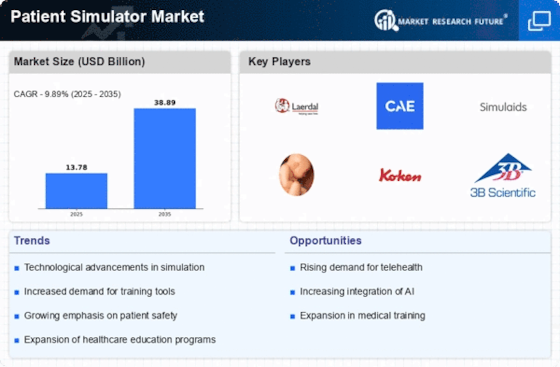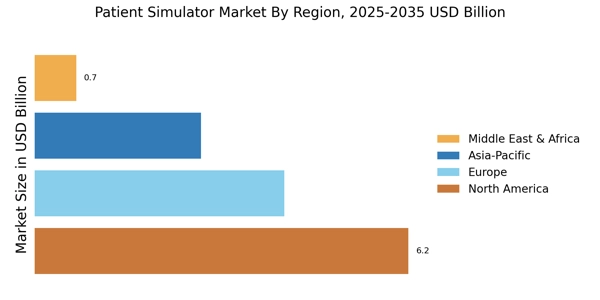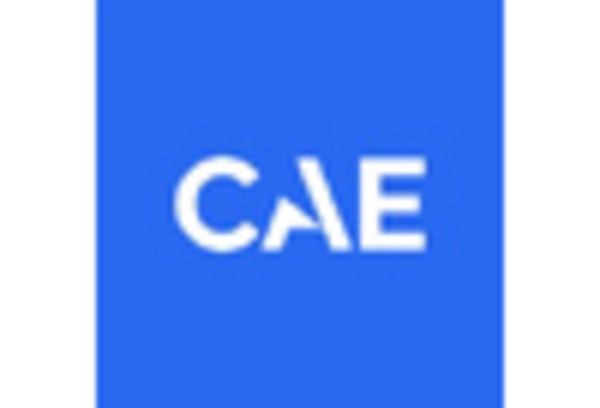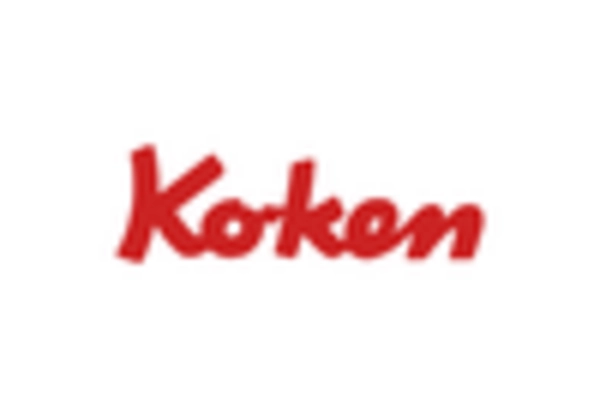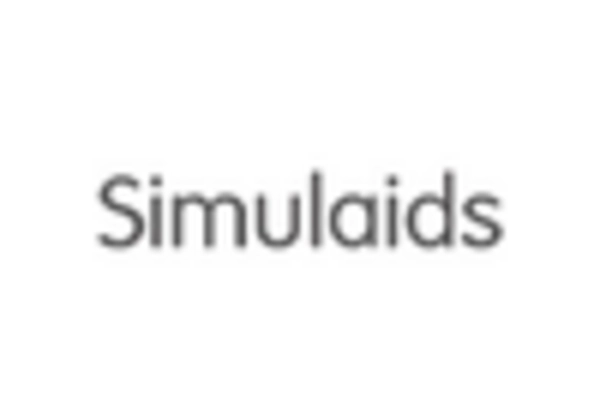Growing Emphasis on Patient Safety
In the Patient Simulator Market, there is an increasing focus on patient safety, which drives the demand for high-fidelity simulators. Healthcare organizations are prioritizing training that emphasizes safe practices and error reduction. The use of patient simulators allows for the replication of critical situations, enabling trainees to learn how to respond effectively without jeopardizing patient safety. This emphasis is reflected in the rising investments in simulation-based training programs, which are expected to reach a valuation of over 1 billion dollars by 2026. Such investments highlight the industry's commitment to improving healthcare outcomes through enhanced training methodologies.
Expansion of Educational Institutions
The Patient Simulator Market is benefiting from the expansion of educational institutions that offer healthcare training programs. As the number of nursing and medical schools increases, so does the demand for patient simulators to facilitate hands-on learning. Institutions are recognizing the value of simulation in bridging the gap between theoretical knowledge and practical application. Recent statistics indicate that enrollment in healthcare programs has risen by 20% in the last three years, further fueling the need for advanced simulation tools. This trend suggests a robust future for the patient simulator market as educational institutions continue to adopt innovative training solutions.
Technological Advancements in Simulation
The Patient Simulator Market is experiencing a surge in technological advancements that enhance the realism and effectiveness of training. Innovations such as virtual reality and augmented reality are being integrated into patient simulators, allowing for immersive training experiences. These technologies enable healthcare professionals to practice complex procedures in a risk-free environment, which is crucial for skill development. According to recent data, the incorporation of advanced simulation technologies is projected to increase the market's growth rate by approximately 15% over the next five years. This trend indicates a shift towards more sophisticated training tools that can better prepare medical personnel for real-life scenarios.
Regulatory Support for Simulation Training
Regulatory bodies are increasingly endorsing simulation training as a vital component of healthcare education, which positively impacts the Patient Simulator Market. Guidelines and standards are being established to ensure that healthcare professionals receive adequate training through simulation. This regulatory support not only legitimizes the use of patient simulators but also encourages institutions to invest in these technologies. As a result, the market is expected to grow steadily, with projections indicating a compound annual growth rate of around 12% over the next five years. This growth is indicative of a broader recognition of the importance of simulation in enhancing healthcare training.
Rising Demand for Cost-Effective Training Solutions
The Patient Simulator Market is witnessing a rising demand for cost-effective training solutions as healthcare organizations seek to optimize their training budgets. Patient simulators provide a practical alternative to traditional training methods, reducing the need for live patients and minimizing associated costs. Organizations are increasingly recognizing that investing in simulation technology can lead to long-term savings by improving training efficiency and reducing errors. Market analysis suggests that the shift towards cost-effective training solutions is likely to drive a significant portion of the market's growth, with an anticipated increase in adoption rates among healthcare facilities.


